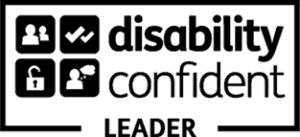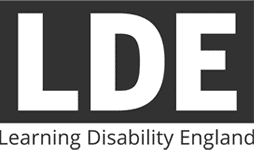Katy Evans – Changing Our Lives Associate
Benefits, housing, education, care support, medical interventions – it’s a given that disabled people have assessments. It’s an ingrained part of disabled life. However, I feel people seldom take the opportunity to think about the impact this has on individuals.
I chose the title because the assessments disabled people experience involve a level of intimacy, which non-disabled people would never be expected to tell anyone – it would likely be considered risky and highly inappropriate, yet for us it is considered a routine part of life whether we like it or not.
I grew up watching my mum interact with professionals and from the age of 8 I could accurately tell someone my difficulties and the support I needed. Assessments moulded me to give personal information away to anyone who asked for it. The assessment process meant I wasn’t taught about the importance of boundaries and not sharing intimate details – I was taught the opposite. As a child I enjoyed the attention assessments brought me and I was eager to answer the questions ‘right’.
Through my teenage years the scrutiny of assessments started weighing heavily on me and the disparity between myself and non-disabled peers became more obvious. I disliked sitting in endless meetings where professionals talked about me. There would be tokenistic efforts to include me but my input never felt valued. I began resenting the intimate nature of assessments and tried avoiding them. However, the ‘forced’ part of the title is there because without assessments I could not have the support I needed to live a full life. I had no choice but to jump through the hoops in the endless assessments laid out before me.
Assessments as an adult have had an increasingly devastating impact on my mental health and how I see myself. Although many ‘services’ claim to operate under the social model, few actually do this and instead frame the difficulty within the person.
Each year the Employment and Support Allowance assessment asks me if I can put a pen in my breast pocket or lift a jug of water. However, it fails to acknowledge the many external barriers making it difficult to work. For example, the lack of genuine wheelchair access on public transport makes it near impossible, extremely stressful and exhausting to use public transport which is a major barrier before even setting foot in a workplace.
Then there are the truly invasive questions. In my Personal Independence Payment (PIP) assessment, not content with me saying I sometimes need help in the bathroom, the assessor tried to gauge how much help I actually needed by asking me if there are marks in my underwear where I haven’t cleaned myself enough. The question took me aback but more horrifying was her blasé attitude as if she’d simply asked me what my favourite colour is. I felt stripped and vulnerable under her scrutiny and the longer she waited for my answer the smaller I felt.
This forced invasion of privacy feels all the more aggressive because assessments like this take place in my own home. My home, probably like yours, is a place that I have worked hard to establish as my only real place of safety and intimacy. It’s the one place that I choose who to allow in, not ever a place where I should experience feeling stripped and scrutinised, where routine procedure forms part of a system that dehumanises me.
The way the system is built, encourages disabled people to think about our lives on the ‘worst day’ to give us the best chance of appropriate support, but few consider the emotional impact this has. Disabled life is my normal – I genuinely wake up in the morning and forget I have a disability, especially because my home is fully accessible to me. Being faced with a 50+ page document laying out all my difficulties in minute detail can be a harrowing experience. There are few opportunities to present myself as a rounded person with hobbies, passions, skills and achievements. The small snatches of opportunities to show these things come with the fear and very real possibility that instead of celebrating who I am, they will be used to deny me support because I’m ‘coping’ well. As a result, disabled people have been conditioned to only describe their ‘worst day’ and feel under pressure to say the ‘right’ things, knowing their quality of life is at stake.
As if initial assessments weren’t difficult enough most assessments are reviewed yearly even if your impairment does not fluctuate and when you’re dealing with multiple services this quickly adds up. This leads to repeatedly describing your worst days and justifying your needs whilst managing the fear that you’ll slip up and get your hard fought for support reduced. There is a constant threat and the fear of change hangs over me as I worry I won’t have the energy to put my life on hold whilst I fight another battle.
I wish I could go back in time and tell my 8-year-old self she could chose who to and how much she told and she didn’t have to reveal intimate details if she didn’t want to, but that would be setting her up for failure because in a system where if you aren’t explicit in assessments you risk a life without adequate support.
Assessments aren’t normal for the wider society but disabled people are expected to accept this as their normal and there’s an enforced sense of gratitude for being given support with no room to acknowledge how distressing the process was. When did we say it was ok to put a section of society under so much scrutiny and ask such intrusive questions without considering the impact to those individuals? Until the assessor is willing to give away their personal details and be at the mercy of decisions made by services there will always be a power imbalance. Some will argue assessments are needed to allocate resources correctly. Admittedly, I am yet to come up with a suitable alternative but I think keeping assessments to a minimum, assessors respecting people as individuals, having awareness of power imbalances and some sensitivity over how information is elicited from people would be a good starting point.





